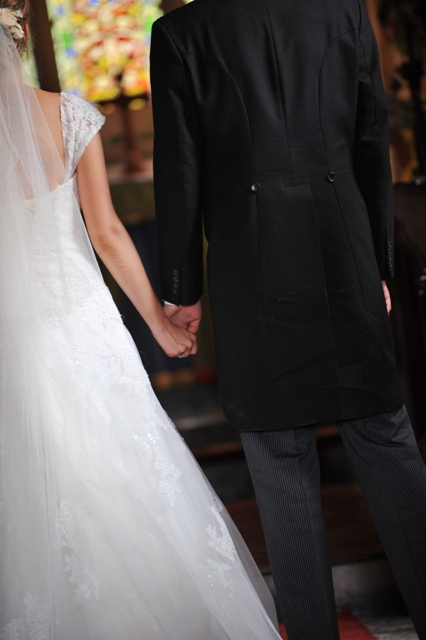Channel 4 is at it again, recruiting single people to take part in the fourth series of their reality programme Married at first sight.
In what the makers describe as a social experiment, three couples will marry, having met for the first time just a few hours before they walk up the aisle.
They will have been matched for compatibility by experts ‘using the latest psychological, anthropological and DNA techniques’.
Although couples are supposedly legally married, they are given an opt-out clause after six weeks if things don’t work out – which is when I suspect they then have to sign the actual legal papers.
Let me start by wishing each of these couples all the very best. I have no desire whatsoever to see them do anything other than have a wonderful marriage.
But my advice to any couple considering going on this programme is “run”. This manipulative programme will play to your hopes and dreams but will almost certainly leave you disillusioned and worse off than you were when you began.
Science does indeed have a great deal to say about the sorts of factors that predict marital satisfaction (happiness) and marital stability (divorce).
Matching couples for compatibility is not one of them.
Searching through the 1,854 articles listed in the leading academic journal on marriage – Journal of Marriage and Family – the word ‘compatibility’ comes up just 4 times in study titles and 9 times in the study summaries.
What does influence the success of a marriage are either ‘static’ factors that couples can’t do much about – e.g. their parents divorced; it’s a second marriage; they have different religious beliefs or levels of education – or ‘dynamic’ factors that are more open to change – e.g. the way couples communicate; escalate; show hostility rather than warmth; or whether they have different bank accounts.
Differences are inevitable for all couples. It’s how couples handle them that counts.
As for the idea that this programme is simply another way of arranging marriages, it isn’t. I’m a fan of arranged marriages. Provided they are not forced, an arranged marriage begins with two people from similar social backgrounds. This makes sense firstly because there are fewer major differences over which to argue and secondly the couple has the social affirmation and support of both sets of families and friends.
Two recent studies – one by psychologists and the other by economists – showed that the more people you have at your wedding the better. Getting married involves taking the risk of say yes to one person and no to all the other options. Having the support of friends and family affirms that you have made a great choice.
When I watched season one of this programme, it was clear from the dumbfounded expressions of all around that even the best men and bridesmaids thought the idea was daft. This is hardly the ringing endorsement these couples would get were their marriage arranged by their families. Everybody knows it’s deluded.
In the end, commitment – making a clear decision about the future – is the foundation stone of a successful marriage.
Deciding, rather than sliding, is the major reason why most marriages work. Even if couples don’t begin with thoughts of divorce – one of the more robust predictors of actual divorce – having the option of a six week exit route is hardly a whole-hearted unambiguous endorsement of lifetime commitment.
This programme, despite its ‘experts’, shows a remarkable lack of understanding of the nature of commitment and marriage.
Ultimately the proof of the pudding is in the eating.
- Among couples who marry conventionally, the divorce rate within the first two years of marriage is well under 1 per cent.
- Among couples who have married during the first three seasons of Married at First Sight, the divorce rate within a matter of weeks is 100 per cent.
If any couple ever does succeed – and I wish them the best of luck – it will be in spite of this absurd programme and not because of it.

